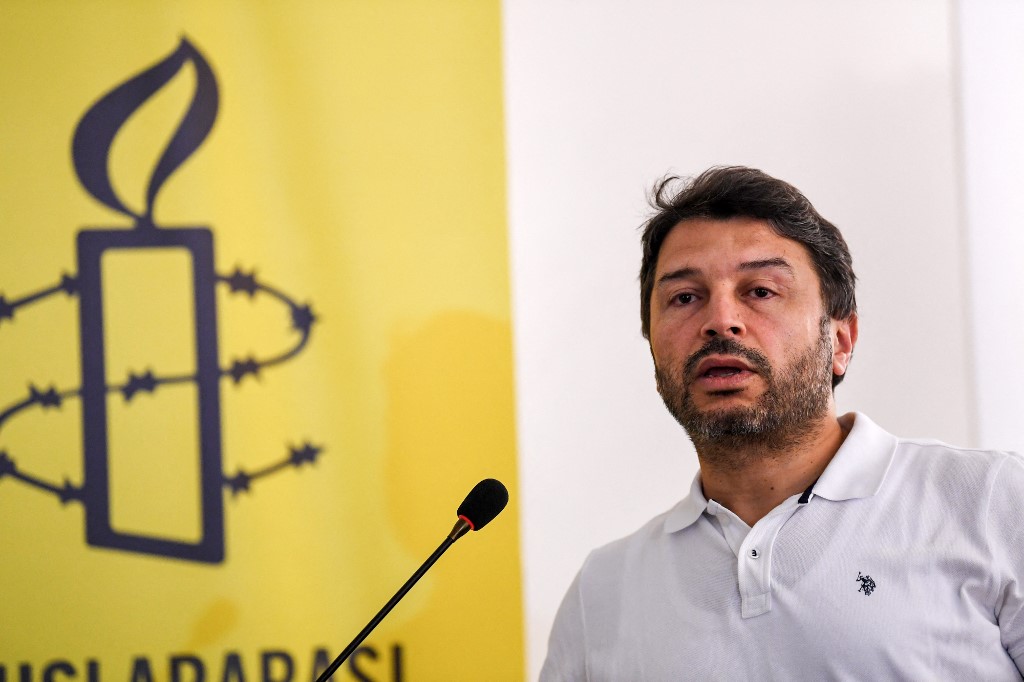The European Court of Human Rights (ECtHR) on Monday rejected Turkey’s request to refer a judgment holding that Ankara’s detention of the head of the Turkish branch of Amnesty International in 2017 was unlawful to the Grand Chamber of the Strasbourg court, thus rendering the judgment final, Euronews Turkish service reported on Monday.
Taner Kılıç was detained in June 2017 on charges of links to US-based preacher Fethullah Gülen, who Turkey accuses of staging a failed coup in 2016 against the government of President Recep Tayyip Erdoğan. Gülen and his movement strongly deny any involvement in the failed putsch.
Kılıç was released pending trial in August 2018. But in July 2020 he was convicted of membership in a terrorist organization and sentenced to six years, three months in prison. Kılıç, who is currently not in detention, has appealed the verdict.
The ECtHR said in May of this year that Kılıç’s pretrial detention had been “unlawful and arbitrary” and there had been “no reasonable suspicion that Mr Kılıç had committed an offence.”
The court said Kılıç’s detention violated the European Convention on Human Rights (ECHR) on four counts. The ECtHR enforces the convention, and all 46 member nations of the Council of Europe must adhere to it.
Rulings from the ECtHR concerning Kurdish politician Selahattin Demirtaş and businessman Osman Kavala, both jailed on politically motivated charges, calling for their immediate release from prison, have angered Erdoğan and his Justice and Development Party (AKP) government.
Turkey has so far failed to implement the court’s rulings concerning Demirtaş and Kavala, prompting the Council of Europe to officially launch an infringement procedure against Turkey in February.
The ECtHR will establish whether Turkey has violated the ECHR. If the Strasbourg court rules that Turkey has not fulfilled its obligations under the convention, then the Committee of Ministers will decide on sanctions to be imposed on the country.
The council’s infringement procedure against Turkey could last months and possibly years.
Turkey could ultimately lose its voting rights or even be removed from the pan-European rights body it first joined in 1950.
Concerns remain over freedom of expression in the country in the wake of the 2016 coup attempt, which saw an unprecedented crackdown against opponents of Erdoğan.
According to 2021 statistics announced by ECtHR President Robert Spano in January, Turkey ranks second in the number of applications pending at the court, with 15,251, coming second only after Russia.
As in the previous year Turkey ranked first among the 47 CoE member states in the number of judgments from the ECtHR concerning violations of freedom of expression in 2021.

